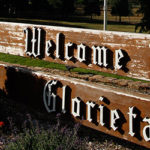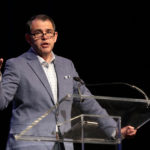Posted: 3/19/04
More 'Buster' pastors, Barna research says
By Erin Curry
Baptist Press
NASHVILLE (BP)–The number of senior pastors ages 20-38 in Protestant churches has doubled in just two years from about 22,000 to more than 45,000, according to a report by the Barna Research Group.
And those young pastors are making significant changes in their ministry approaches when compared to those before them, the study concludes.
The latest Barna study refers to the young pastors as part of the “Buster” generation that has typically lived in the shadow of “Boomers” but is now emerging to form its own identity in the church.
Compared with older pastors, Barna said, Buster pastors are more likely to use drama; more likely to show movies, videos and DVDs; and more likely to tell stories when presenting biblical truths.
They also are bigger fans of using art, music and interactive dialogue to convey messages.
“These multi-media and experience-laden forms of communication appeal to younger, often postmodern people, who tend to reject external sources of authority in favor of relying on their own experiences and feelings to interpret reality,” the report said.
Young pastors' perspectives about their churches and their ministry skills differ from their predecessors.
Forty-five percent of young pastors describe their churches as seeker-driven, compared to 33 percent of older pastors. And 93 percent of Busters classify their congregations as theologically conservative, compared to 80 percent of older pastors.
Leadership, administration and management were the skills young pastors rated themselves highest on, according to the study, while pastoring, shepherding and counseling were weaker areas.
Though a large number of Buster pastors describe their churches as theologically conservative, young pastors are less likely to pursue a traditional seminary education.
Fewer than half of Buster pastors have a seminary degree, compared to two-thirds of Boomers.
Part of the gap stems from the fact that some pastors obtain seminary degrees later in life, Barna noted.
As an alternative to seminary, Barna said past studies indicate a growing number of large churches are training members for full-time ministry from within through apprenticeships. Many times the leaders will be trained within the mother church to be sent off-campus to plant a church.
Buster pastors were significantly more likely to affirm that children are more influenced by magazines, peers, television (including specifically MTV) and politics than by the church, the study revealed.
Barna also found that Buster pastors are more likely than Boomer pastors to prioritize ministry to families, youth and children, placing a greater emphasis on spiritual growth, discipleship and Bible study.
“Young pastors are basically cutting and pasting from fresh ideas as well as from established wisdom to form a new, era-appropriate portrait of church leadership,” David Kinnaman, vice president of Barna Research and director of the study, said in the report.
“A handful of the young leaders are making huge changes in their ministry approaches when compared to older pastors, but most Buster pastors are simply tinkering with the style–not the substance–of ministry.”
The Barna study was based on a national sample of 3,005 senior pastors from Protestant churches conducted from 2001 through 2003.














We seek to connect God’s story and God’s people around the world. To learn more about God’s story, click here.
Send comments and feedback to Eric Black, our editor. For comments to be published, please specify “letter to the editor.” Maximum length for publication is 300 words.